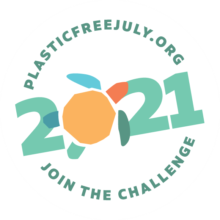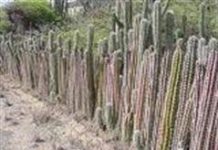Are you aware of the law that prohibits the use of environmentally harmful products? Did you know that the National Ordinance Prohibition of Environmentally Harmful Products ( AB2019No.67 ) prohibits the use of single-use plastic? Read more about this law that regulates which products are prohibited from importing, purchasing or giving away single-use plastic products.
For the month of July, the Nature and Environment Directorate, as in previous years, is proposing a challenge for the use or purchase of plastic products. The platform www.plasticfreejuly.orghas a challenge available to help those who want to change their daily habits of using plastic products. Advice is available on the platform on how to successfully achieve this change, but it helps with how to avoid using plastic products and for how long. It also includes an option where each participant can set their level at which he or she considers themselves to take the next step. Entrants can select the time frame they want to be part of the challenge for, either for a day, a week, or the entire month of July or even from now on. Share the link with your friends on your personal social media so that others can know about the challenge you are participating in.
- Party balloons or balloons used in fishing. It is inevitable that these balloons end up in the ocean and are eaten by sea turtles and fish. This is deadly for these species, but also for humans if they enter our food chain. Humans can eat fish that contain microplastics. Global research has already shown that our food already contains microplastics. It is recommended to use other types of decorations and to fish in a more sustainable way.
- Plastic soda, water and fruit juice bottles. Most people throw away their empty plastic bottles after consumption. These can be reused by refilling them with tap water. Another option is to buy these products in glass bottles or cardboard tetra packaging.
- Plastic flowers used for decorations or at funerals. Use fresh flowers or donate to a foundation.
- Plastic confetti that is also used as decoration is prohibited and can be replaced with paper confetti. Foam sheets are also made of plastic and can be replaced with textiles.
- Plastic pie boxes can be replaced with cardboard or reusable boxes.
- Disposable face masks can be replaced by reusable face masks.
- Personal hygiene products: Sanitary pads can be replaced with the menstrual cup. Instead of disposable diapers, use reusable diapers, use Q-tips with wooden or paper sticks. Avoid buying plastic floss sticks and disposable razors.
- Refuse coffee cup lids, use your own reusable coffee mug. Refuse stirrers or plastic straws. There are wooden stirrers or bring your own reusable stirrer.
July is the month dedicated to raising awareness about using plastic products to help you take real action. By taking on challenges like plasticfreejuly.org, you help reduce the amount of waste and pollution that ends up in the landfills at Parkietenbos and Sero Teishi. The DNM thanks those who have already made the transition to a plastic-free world and have risen to the challenge. Only together can we be the change and be part of the solution to reduce plastic pollution that seriously damages the environment and the world we live in.

















